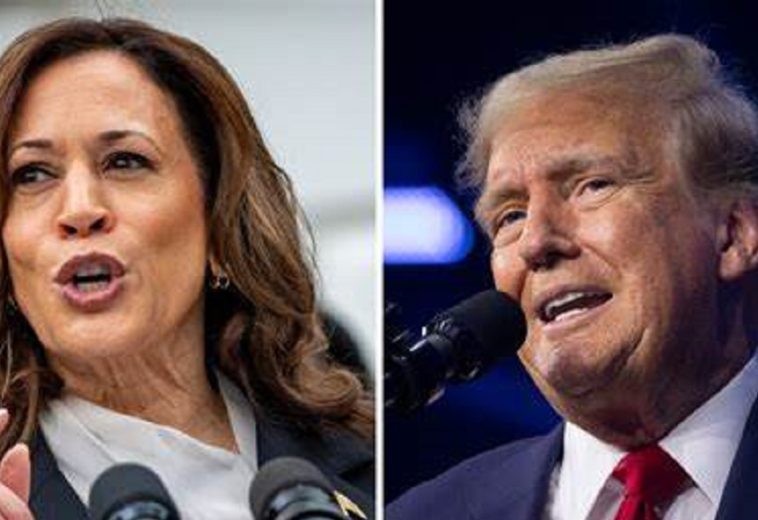With the 2024 U.S. presidential election looming on November 5th, African Americans and Africans in the diaspora are keenly assessing their options; weighing which candidate, Republican Donald Trump or Democratic Vice President Kamala Harris, will better serve their needs and champion Black interests in the U.S.
Data from Johns Hopkins University’s Centre for Gun Violence Solutions illustrates that among every other factor, gun violence remains the leading cause of death for Black youth, with Black Americans facing disproportionate firearm-related fatalities and injuries compared to other demographics.
Voting Rights
Historically, the Black community has faced significant barriers in exercising their right to vote. Although protections like the Voting Rights Act of 1965 sought to dismantle discriminatory practices, recent legislative changes in multiple states have introduced stricter voter ID laws, limited mail-in voting options, and reduced voting locations in urban areas. Black communities, particularly in states like Georgia and Texas, have reported more challenges in access to voting, leading to lower turnout in these areas. Voting rights advocacy groups, such as the NAACP and Black Voters Matter, have repeatedly called for legislation that safeguards these rights, an issue both parties are divided over.
Kamala Harris has publicly supported policies to protect voting access, backing the John Lewis Voting Rights Advancement Act, which would reinstate crucial protections from the Voting Rights Act. Her stance aligns with the Democratic agenda to prevent restrictions on voter registration. Donald Trump’s camp, however, advocates for more stringent voter identification laws. For Black voters, this raises questions of accessibility and whether new regulations might hinder turnout among historically disenfranchised communities.
Gun Violence
Gun violence has deeply affected Black communities across the U.S., where Black Americans experience gun-related fatalities at disproportionately high rates. Research shows that Black individuals are 10 times more likely to die from gun-related incidents than their white counterparts.
Gun violence has become the leading cause of death for children and adolescents aged 1–19 in the U.S., and black children bear an outsized burden. For instance, while only 14% of the child population, black children account for 42% of youth gun deaths. Mass shootings have also risen, with 2024 witnessing over 260 mass shootings by July, resulting in 274 deaths and more than 1,131 injuries.
Policy differences between Trump and Harris here are stark. Harris advocates for stronger gun control measures, including universal background checks, assault weapon bans, and red flag laws, viewing them as preventive strategies to reduce gun violence in Black communities. Trump, in contrast, supports the Second Amendment and opposes stringent gun control, instead promoting increased policing and security measures. Black voters must consider which approach aligns more closely with their community’s safety needs.
Police Brutality
Police brutality remains a deeply concerning issue for Black Americans, who are statistically over three times more likely to be killed by law enforcement than white Americans. High-profile cases, such as those of George Floyd and Breonna Taylor, have highlighted systemic issues within law enforcement and prompted widespread calls for reform. Many Black Americans have spoken of trauma from encounters with law enforcement and their fear of racial profiling and violence.
As vice president, Harris supported the George Floyd Justice in Policing Act, which proposes federal standards for policing practices, including banning chokeholds and ending qualified immunity for officers. Trump’s track record on this issue is less focused on police reform, prioritising “law and order” and advocating for expanded police budgets rather than stricter oversight. Black voters face a decision on which candidate is more likely to champion substantive changes to address police violence in their communities.
Campaign Promises and Implications
Education, Economic Equity, and Healthcare
Economic stability, educational access, and healthcare are also high priorities for Black communities. Harris has advocated for advancing racial equity, continuing the Biden administration’s policies, which include support for Black-owned businesses, accessible education, and healthcare. She has promoted increased federal funding for historically Black colleges and universities (HBCUs) and tuition-free community colleges to help close educational disparities. In healthcare, Harris supports expanding the Affordable Care Act, which has improved healthcare access for Black Americans.
Trump, on the other hand, promotes economic growth through deregulation and tax cuts, which he argues will benefit Black entrepreneurs by creating a robust business environment. His education policies emphasize school choice, advocating for charter schools as alternatives to public schooling. In healthcare, he favours a less regulated market, asserting that competition will drive down costs.
Which Candidate Aligns with Black Interests?
Ultimately, Black voters must weigh whether Harris’s focus on equity, justice, and community-focused reforms aligns with their needs or if Trump’s emphasis on economic freedom and deregulation is more appealing. Black voters’ priorities—from voting rights and police reform to gun violence reduction and healthcare access—make this election a crucial opportunity for their votes to shape their destiny.


















